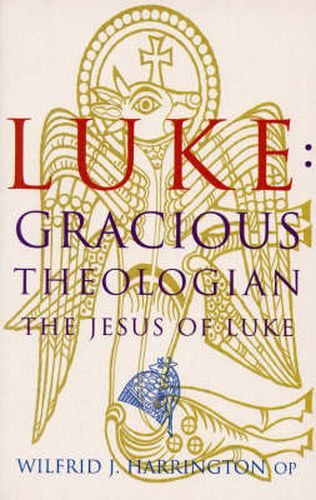Readings Newsletter
Become a Readings Member to make your shopping experience even easier.
Sign in or sign up for free!
You’re not far away from qualifying for FREE standard shipping within Australia
You’ve qualified for FREE standard shipping within Australia
The cart is loading…






This study examines how the Gospel of Luke portrays Jesus most clearly as saviour. It is in this Gospel that Jesus is found as sensitive and compassionate. There is great gentleness, but there is nothing soft or easy-going about this Jesus. On the other hand, he does reflect the God who is, disconcertingly, the God of sinners. The Lucan Jesus, who truly knows the Father, is wholly in the business of lifting the burden of sin - not of adding to it. Luke believes that what Jesus did, said and suffered had and has a significance for and bearing on human history. Luke does not seek to suppress the tragedy and mystery of the Cross nor undervalue its saving role. He does not question the need for the disciple of Jesus to deny oneself, to take up the Cross, and follow the Master. Luke has shown what may be made of Jesus’s deeds and words in a time after the era of Jesus. For Christians in the 20th century, conscious of a gap of two millennia between the first proclamation of the Christian message and their striving to assimilate that message, the book argues that Luke’s preaching of the good news may be more congenial than others.
$9.00 standard shipping within Australia
FREE standard shipping within Australia for orders over $100.00
Express & International shipping calculated at checkout
This study examines how the Gospel of Luke portrays Jesus most clearly as saviour. It is in this Gospel that Jesus is found as sensitive and compassionate. There is great gentleness, but there is nothing soft or easy-going about this Jesus. On the other hand, he does reflect the God who is, disconcertingly, the God of sinners. The Lucan Jesus, who truly knows the Father, is wholly in the business of lifting the burden of sin - not of adding to it. Luke believes that what Jesus did, said and suffered had and has a significance for and bearing on human history. Luke does not seek to suppress the tragedy and mystery of the Cross nor undervalue its saving role. He does not question the need for the disciple of Jesus to deny oneself, to take up the Cross, and follow the Master. Luke has shown what may be made of Jesus’s deeds and words in a time after the era of Jesus. For Christians in the 20th century, conscious of a gap of two millennia between the first proclamation of the Christian message and their striving to assimilate that message, the book argues that Luke’s preaching of the good news may be more congenial than others.